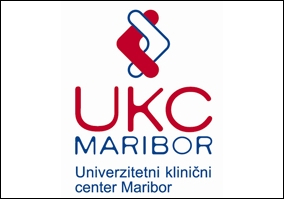Development and testing of cell lines to model the effects of CO2 exposure on endometrial cancer
Reference number
MIZŠ: IRP – 2018/01-19
Financing, programme, call
Financed by the University Medical center Maribor (UKC MB).
Partnering organisations

Coordination
Darja Arko (project manager), Uroš Maver (research group leader at the Medical faculty), Rajko Kavalar (research group leader at the Department of pathology UKC Maribor)
Duration
2018 – 2021 (3 years)
Back to the list
Short description
Treatment of endometrial cancer can only be successful when radical excision with adequate resection margins is performed. Care and treatment are difficult, extensive and can lead to long lasting physical as well as mental health consequences. Recently, laparoscopic surgery has become more frequent and has due to its benefits (less scarring and bleeding, shorter hospitalisation periods) in comparison with the classical open approach, become the primary operating technique.
Influential studies in 2019 have shown that the survival and treatment outcome of patients with cervical cancer at early stages (IA1-IB1) differs based on the operating technique. It has been shown that the laparoscopic technique is associated with a higher recurrence rate and lower overall survival rate. The reason for such a disparity has not been fully explained.
A sixfold increase in mortality due to a specific operating technique is not acceptable. One of the potential explanations might be the exposure of endometrial cancer cells to carbon dioxide, which is used as a distension medium during minimal invasive surgery. The study has been conceptualised in a stepwise approach in which every step will contribute to the following step and finally lead the development of an authentic and functional in vitro endometrial cancer model.
Goals
- The development of model in vitro models based on commercially available endometrial cell lines – 2D models, 3D models, inserts.
- Development of a successful isolation protocol for endometrial cancer.
- Isolation and characterisation of endometrial cancer cells derived from patient tissue.
- Development of a functional in vitro endometrial cancer model.
- Evaluation of the effects of CO2 exposure at different levels on our cell lines and sufficient quality for comparative characterisation with commercial cell lines and analysis.
Published works from our group:
- SKOK, Kristijan, GRADIŠNIK, Lidija, MAVER, Uroš, KOZAR, Nejc, SOBOČAN, Monika, TAKAČ, Iztok, ARKO, Darja, KAVALAR, Rajko. Gynaecological cancers and their cell lines. Journal of Cellular and Molecular Medicine. Apr. 2021, vol. 25, issue 8, str. 3680-3698, ilustr. ISSN 1582-4934. https://onlinelibrary.wiley.com/doi/10.1111/jcmm.16397, https://doi.org/10.1111/jcmm.16397, DOI: 10.1111/jcmm.16397. [COBISS.SI-ID 54283267], [JCR, SNIP, WoS, Scopus]
- SKOK, Kristijan, MAVER, Uroš, GRADIŠNIK, Lidija, KOZAR, Nejc, TAKAČ, Iztok, ARKO, Darja. Endometrial cancer and its cell lines. Molecular biology reports. 2020, vol. 47, iss. 2, str. 1399-1411, ilustr. ISSN 1573-4978. https://link.springer.com/content/pdf/10.1007/s11033-019-05226-3.pdf, DOI: 10.1007/s11033-019-05226-3. [COBISS.SI-ID 6890047]